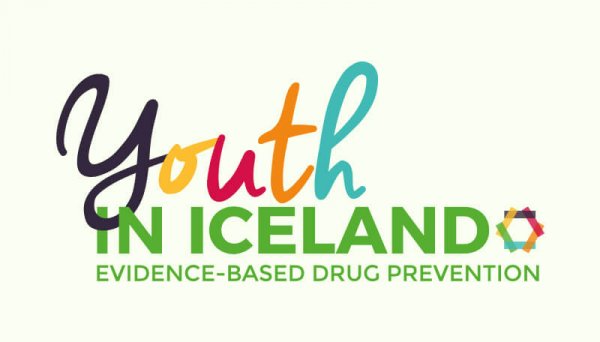How Did Iceland Stop Teen Drinking and Smoking?

Iceland has achieved something that would be a dream for a lot of countries in the world. Not only does it have a high quality of life in nearly every sense, but it has also solved serious problems with teenagers. For example, it was able to stop teen drinking and smoking.
The most fascinating thing about it is that less than even 20 years ago, Iceland was among the European countries with the highest rates of teenage consumption of psychoactive drugs. So, the change was progressive and continual. And the best part: it worked.
“Teenagers are convinced they possess the truth. Unfortunately, once they’re able to impose it they’re no longer teenagers and it’s not longer true.”
-Jaume Perich-
This is all thanks to the program, Youth in Iceland. The program started in 1998. The goal was to reduce the consumption of tobacco and alcohol, as a start. The society was worried about it’s young people, who seemed disoriented at the time.
The first step to stop teen drinking and smoking in Iceland
The director of the Iceland Center for Social Research and Analysis, and the head of Youth in Iceland, is Jón Sígfusson. For this civil servant, it was impossible to undertake any action without prior research. So he put all his efforts in the initial phase towards studying the situation.

Sigfusson has indicated that people in Iceland didn’t want shed their biases. It’s very easy to shed preconceived notions when it comes to alcohol and drugs. Sometimes we assume there’s already enough knowledge about the issue, but that’s not the case. Which is why Iceland prioritized the research and its dissemination.
One of the important factors is that it wasn’t simply research. They erected a research system. By way of this system they mapped out psychoactive drug consumption, every two years. Sometimes the causes and effects change and that’s why there needs to be constant monitoring.
These studies have allowed for a collection of data about the sex of the consumers, the patterns of consumption, the make-up of their homes, the relationship between consumption and school absence, as well as the emotional problems that afflict young consumers. From this data, they formulated action plans in Iceland.
How adults can help stop teen drinking and smoking
The studies carried out in Iceland helped to establish that the role played by adults was very relevant. The teenagers are one side of the coin and on the other are the adults who bring them up. So, they concluded it would be necessary to empower those adults, to give them tools so they would know what to do in different circumstances.
In this way, they created a program to train parents and other family members. They instructed them about various drugs and their effects. But they especially reinforced the idea that the drug addiction problem in Iceland also had to do with them. The teenager carries one part of the responsibility, but another large part is carried by the adults bringing them up.
The most important thing is that they reinforced awareness about the adults’ emotional role in the teenagers’ lives. They established that a decisive factor in preventing consumption was the nearness of adults. Their care, company, and watchfulness. Spending time with the kids was fundamental. Not necessarily directing them, but still being with them.
Free time and feeling fulfilled
The studies also established that the use of free time was a determining factor. This doesn’t just give teenagers a point of control, but also helps them increase their sense of fulfillment. That’s why Iceland funneled the necessary resources to increase the availability of athletic, recreational, and artistic activities for children and teenagers.
In the same way, they established a law that it was illegal for anyone under 12 years old to walk the streets alone after 8 o’clock at night. For their part, the kids between 13 and 16 years old can’t do it after 10 o’clock at night. In this way, Icelandic society as a whole started to take up responsibility for its teenagers.

Currently, only 5% of Icelandic teenagers say they’ve drunk alcohol. Along the same lines, only 3% say they smoke a cigarette a day. And only 7% has smoked marijuana in the past month. They’re ideal figures for any country. But those rates aren’t achieved on their own. Like in Iceland, the State, families, and society in general have to make a commitment to it.
Iceland has achieved something that would be a dream for a lot of countries in the world. Not only does it have a high quality of life in nearly every sense, but it has also solved serious problems with teenagers. For example, it was able to stop teen drinking and smoking.
The most fascinating thing about it is that less than even 20 years ago, Iceland was among the European countries with the highest rates of teenage consumption of psychoactive drugs. So, the change was progressive and continual. And the best part: it worked.
“Teenagers are convinced they possess the truth. Unfortunately, once they’re able to impose it they’re no longer teenagers and it’s not longer true.”
-Jaume Perich-
This is all thanks to the program, Youth in Iceland. The program started in 1998. The goal was to reduce the consumption of tobacco and alcohol, as a start. The society was worried about it’s young people, who seemed disoriented at the time.
The first step to stop teen drinking and smoking in Iceland
The director of the Iceland Center for Social Research and Analysis, and the head of Youth in Iceland, is Jón Sígfusson. For this civil servant, it was impossible to undertake any action without prior research. So he put all his efforts in the initial phase towards studying the situation.

Sigfusson has indicated that people in Iceland didn’t want shed their biases. It’s very easy to shed preconceived notions when it comes to alcohol and drugs. Sometimes we assume there’s already enough knowledge about the issue, but that’s not the case. Which is why Iceland prioritized the research and its dissemination.
One of the important factors is that it wasn’t simply research. They erected a research system. By way of this system they mapped out psychoactive drug consumption, every two years. Sometimes the causes and effects change and that’s why there needs to be constant monitoring.
These studies have allowed for a collection of data about the sex of the consumers, the patterns of consumption, the make-up of their homes, the relationship between consumption and school absence, as well as the emotional problems that afflict young consumers. From this data, they formulated action plans in Iceland.
How adults can help stop teen drinking and smoking
The studies carried out in Iceland helped to establish that the role played by adults was very relevant. The teenagers are one side of the coin and on the other are the adults who bring them up. So, they concluded it would be necessary to empower those adults, to give them tools so they would know what to do in different circumstances.
In this way, they created a program to train parents and other family members. They instructed them about various drugs and their effects. But they especially reinforced the idea that the drug addiction problem in Iceland also had to do with them. The teenager carries one part of the responsibility, but another large part is carried by the adults bringing them up.
The most important thing is that they reinforced awareness about the adults’ emotional role in the teenagers’ lives. They established that a decisive factor in preventing consumption was the nearness of adults. Their care, company, and watchfulness. Spending time with the kids was fundamental. Not necessarily directing them, but still being with them.
Free time and feeling fulfilled
The studies also established that the use of free time was a determining factor. This doesn’t just give teenagers a point of control, but also helps them increase their sense of fulfillment. That’s why Iceland funneled the necessary resources to increase the availability of athletic, recreational, and artistic activities for children and teenagers.
In the same way, they established a law that it was illegal for anyone under 12 years old to walk the streets alone after 8 o’clock at night. For their part, the kids between 13 and 16 years old can’t do it after 10 o’clock at night. In this way, Icelandic society as a whole started to take up responsibility for its teenagers.

Currently, only 5% of Icelandic teenagers say they’ve drunk alcohol. Along the same lines, only 3% say they smoke a cigarette a day. And only 7% has smoked marijuana in the past month. They’re ideal figures for any country. But those rates aren’t achieved on their own. Like in Iceland, the State, families, and society in general have to make a commitment to it.
This text is provided for informational purposes only and does not replace consultation with a professional. If in doubt, consult your specialist.







